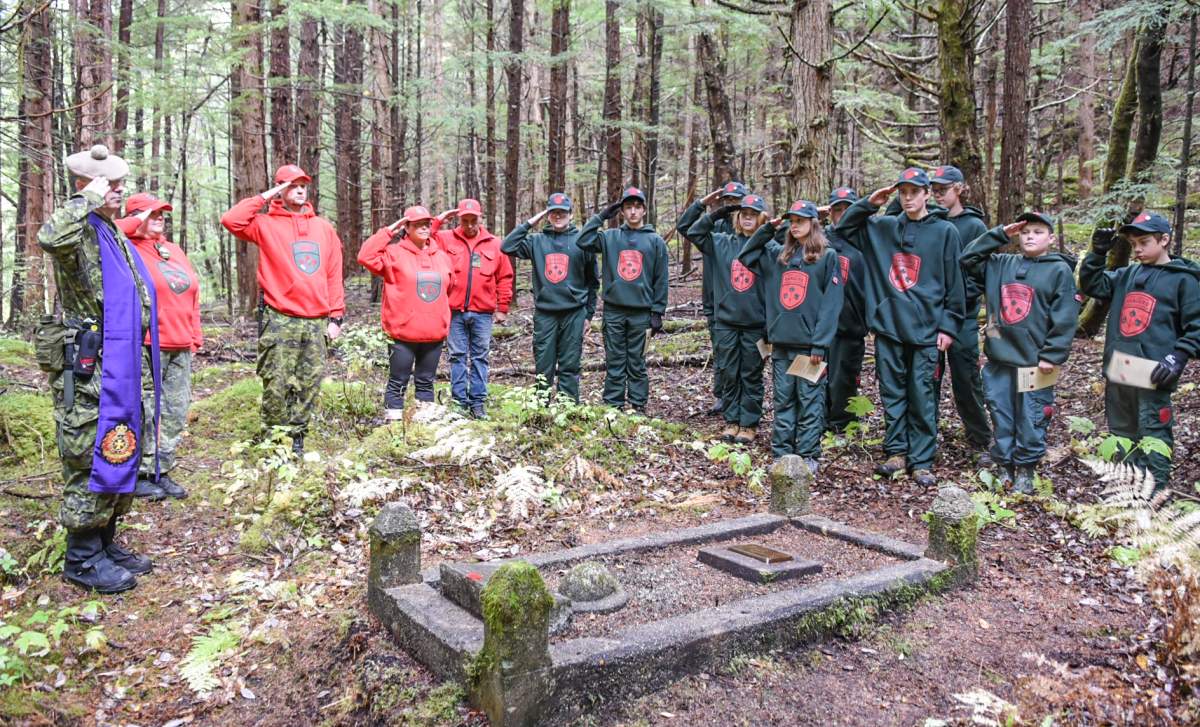In the early 1900s, the town of Anyox, B.C. was a bustling mining town.

The Granby Consolidated Mining and Smelting Company operated a copper mine, state-of-the-art smelter and brickyard that was the main economic driver in Anyox, located 60 kilometres southeast of Stewart, B.C. on the coast of the Observatory Inlet.
WATCH: Globalnews.ca coverage of No Stone Left Alone
When the First World War began in 1914, the company promised Anyox men who enlisted in the Canadian Armed Forces that they could have their jobs back when they returned from their tour of duty.
The company also honoured Anyox veterans by providing them with a grave complete with military recognition.
Amid the Great Depression, the mine shut down and the town’s 3,000 residents moved on. Forest fires in 1943 and 1944 destroyed the remaining structures in Anyox.
- 35 court dates and no trial: Family of B.C. double homicide victims frustrated by delays
- ‘Embarrassing’: Vancouver councillor calls out mayor over drugs comment controversy
- ‘Like a spelling mistake’: B.C. teen’s DNA ‘corrected’ to cure rare disease
- ‘Ghosted’: Canadians stranded in Puerto Vallarta say they are abandoned by WestJet
With no rail or road links connecting Anyox to the rest of the province, it remains one of B.C.’s most remote ghost towns.

Get breaking National news
According to Canadian Ranger Patrol Eric Drew of Stewart, B.C., about 400 Granby company employees fought in the First World War and just 50 or 60 soldiers returned. Fifteen of those veterans’ remains were buried near the town, complete with graves arranged by the Granby company.
The graves of the veterans, like Anyox itself, remained largely forgotten to history.
Five years ago, Drew found the graves while on a training exercise.
“We were walking through the forest and then all of a sudden there are some headstones popping up over the middle of the forest floor,” he said.
Drew said the soliders’ graves were identifiable by the military helmets and posts, both made of concrete, on each corner.
“A lot of them had been broken or damaged by trees growing up in the root structures or trees falling over and damaging them,” he said.
For the last four years, Drew has organized to have a group of Junior Canadian Rangers from the Stewart and Telkwa Junior Canadian Ranger Patrols fly to Anyox by helicopter and then make a 20-minute hike into the woods to clean and lay poppies on the graves of 15 soldiers.
Last month, a group of junior rangers went to Anyox to tend to the grave site as part of the No Stone Left Alone program.
“When we go in there with the youth, we spend the first hour or two cleaning up every site and then we conduct our ceremony,” Drew said.
During the ceremony, the young rangers say the soldier’s name out loud, lay a poppy at their headstone and give them a salute.
Drew sees his work as an extension of the Granby company’s pledge to take care of the Anyox residents who served their country.
He also sees the trips as a valuable lesson to young people, illustrating how easily the sacrifices of Canadian soldiers can be lost to time if we don’t take active steps to preserve them.
“It’s probably one of the more unique grave sites in Canada for veterans, just because of the remoteness and location,” he said.
“So I think it’s important that we come in here and pay our respects because this place has been neglected for nearly a hundred years.”
















Comments
Want to discuss? Please read our Commenting Policy first.